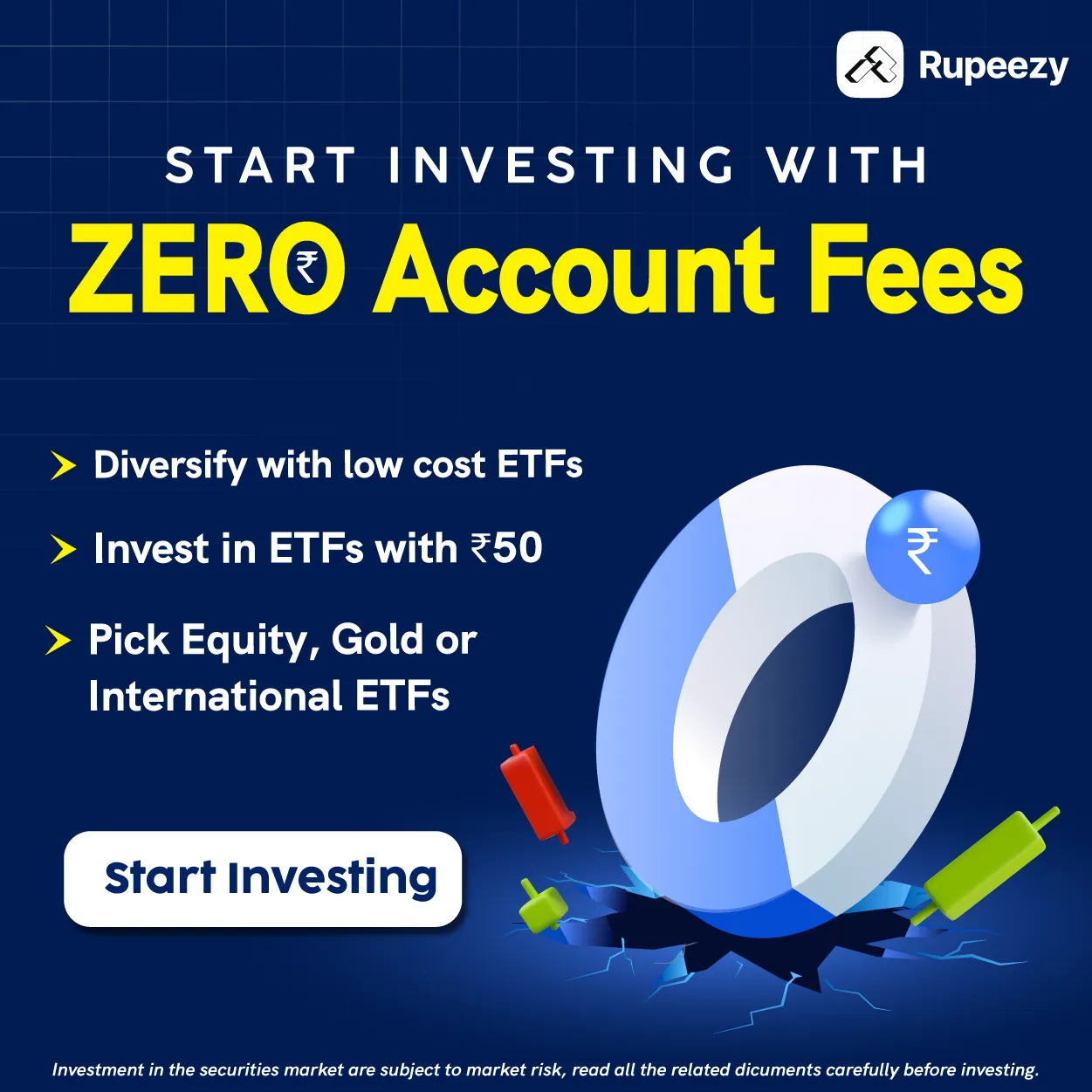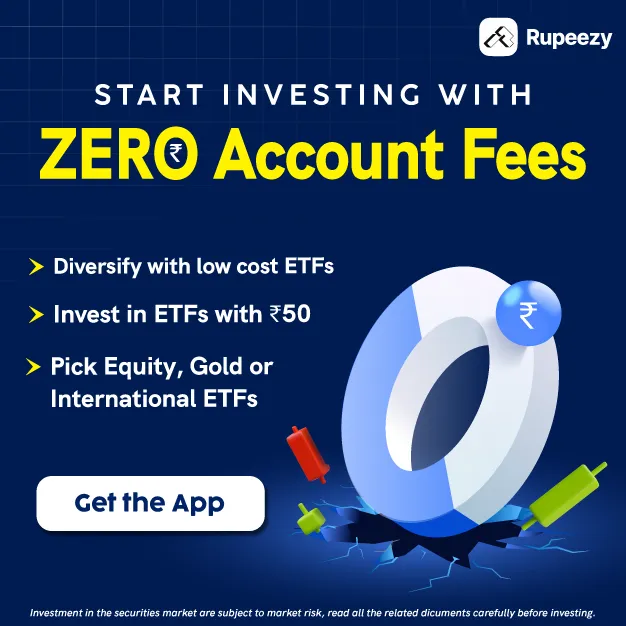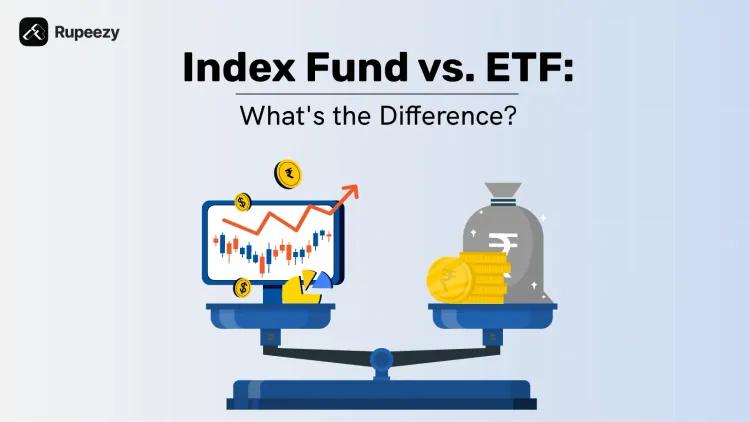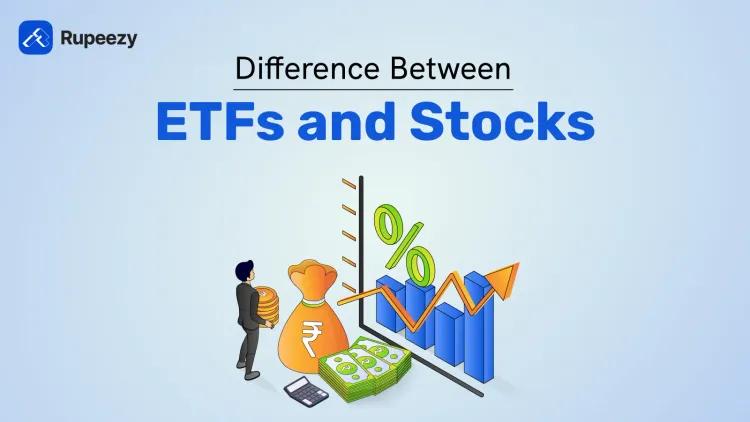How to Invest in Gold ETF - Benefits, Risks and Charges
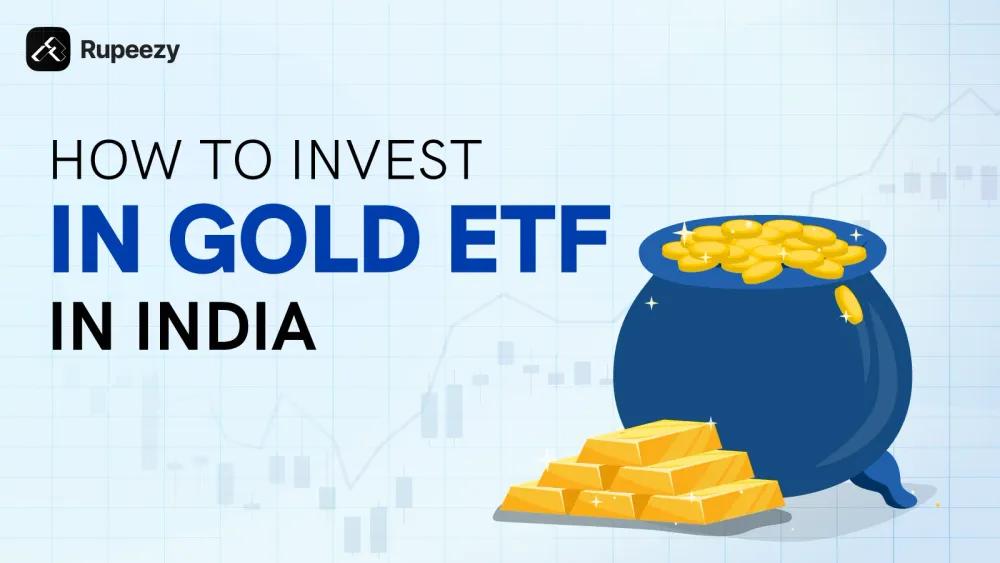

00:00 / 00:00
For generations now, Indians have loved gold, denoting our rich cultural heritage. In addition to the traditional value, gold is also an excellent form of investment available in both physical and digital forms.
There are two major ways through which gold is invested in India: the offline and the online way. The offline way of investing could include the purchase of gold jewelry, bars, and coins that can be further decorated at additional making and design costs. Online investments entail a more cost-effective way of stepping into gold ownership in digital forms, including gold mutual funds, Sovereign Gold Bonds, and Gold ETFs.
In this article, we will provide valuable information about Gold ETFs, is it good to invest in Gold ETFs and their benefits, charges and risks.
Read on to learn more
What is a Gold ETF?
Gold ETFs are an investment option similar to mutual funds in which the fund house invests money into commodities such as Gold. These funds are traded in stock exchanges and their units can be sold or bought just like trading stocks
In simple terms, Gold ETFs are funds where physical gold is represented in both dematerialized and paper form. Here investors do not buy actual gold but make investments in gold in the form of stocks or units.
Also Read: Best Gold ETF in India
How Gold ETFs Work
To put it in simple terms, Gold ETF funds are that track domestic physical gold and
each unit of a gold ETF is equivalent to one gram of gold, which is 99.5% pure. This actual gold, stored in the vaults of custodian banks, works just like the underlying from which the units derive their value.
Gold ETFs: Charges, Benefits and Risks
Charges
Expense ratio: These are the charges that are charged by the fund house for managing the fund. These charges are usually around 1% and are added to the cost of purchase for the smooth functioning of the fund. The expense ratio includes fees for record retention, payments covering salaries of the employees, and other general allocated expenses.
Brokerage Charges: These are the charges that are paid to the brokers such as online trading platforms for each activity of buying and selling units of Gold ETFs
These charges are usually around 0.5 - 1 percent and they vary depending on the brokerage platform.
Benefits
Transparency
Gold ETFs offer transparency as they are listed in the exchanges and the prices are derived from the underlying gold.
Purity: While buying Gold ETF, the purity is ensured since it is backed by physical gold of 99.5% purity.
Secure from theft: As units of Gold ETF being stored in a demat form rescues one can save on the locker charges and have a safety against any theft as physical gold is not involved.
No entry and exit load: An investment in Gold ETF doesn't charge any entry or exit load, as it is only traded on the exchange.
Tax advantages: Physical gold attracts indirect taxes like GST at the rate of 3% on purchase and sale value. This cost gets saved in the ETF transactions as ETFs are securities and Securities are specifically excluded from GST.
ETFs are accepted as collateral for loans
ETFs (Exchange-Traded Funds) are increasingly being accepted as collateral for loans, particularly in the context of securities lending and other financial transactions. Here’s an explanation of how this works and its implications:
Risks
Fluctuation risk: Gold as an investment option has a history of showing exponential growth only when the economy lacks stability. is inversely proportional to the economic scenarios. For example, gold hit an all-time high when the world was hit by Covid-19 and now trades at almost 20% less than the highs, when the economy is stabilizing.
Low volumes of trade:
Physical gold has high liquidity as it is the oldest instrument in the market while Gold ETFs are less liquid due to their recentness to the market. As a result, currently, these are trading in lower volumes.
Taxation: Selling Gold ETFs brings an added liability to the investment in the form of capital gains tax. This does not occur while redeeming the Sovereign Gold Bonds since SGBs are exempted from tax if they are redeemed at maturity.
How to Buy Gold ETF?
There are mainly 2 ways to buy Gold ETFs and those are direct and indirect methods
The direct method involves buying units of gold ETFs through a stock broker. Thereafter, just like buying any shares, units of gold ETFs can be bought directly through the stock exchanges. However, it requires a Demat account to purchase ETFs.
The Indirect method involves investing in gold funds. Further, these gold funds invest in the gold ETFs. These funds are also known as fund of funds.
Investors mostly use direct methods to invest in Gold ETFs for their reliability and monitoring options. It requires some steps to be followed by investors in order to buy gold ETFs online. Those steps are as follows:
STEP 1. The first and foremost step is to open a Demat account with a certified stockbroker like Rupeezy
STEP 2. Login to your account and browse through various gold ETFs in Rupeezy's online trading portal.
STEP 3. After doing comprehensive research, choose the gold ETF you want to invest. You can either purchase it all at once or regularly with SIPs
STEP 4. Start investing by placing a buy order for a specified quantity
STEP 5. You will receive a confirmation mail and a message to your phone number linked to your demat account
Conclusion
Gold ETFs are one of the good options for investors for those who are interested in investing in an instrument that facilitates stable returns in the long term. It is one of the less risky options for investing compared to others. Due to its direct gold pricing, there is complete transparency on the holdings of an ETF. It also provides the benefit of tax advantages.
Furthermore, it doesn’t have entry and exit loads, unlike other mutual funds. As it is new compared to other options in the market, it is likely to be trading in lesser volume, affecting investors' returns. However, Investors are advised to do their own research before investing in gold ETFs.
The content on this blog is for educational purposes only and should not be considered investment advice. While we strive for accuracy, some information may contain errors or delays in updates.
Mentions of stocks or investment products are solely for informational purposes and do not constitute recommendations. Investors should conduct their own research before making any decisions.
Investing in financial markets are subject to market risks, and past performance does not guarantee future results. It is advisable to consult a qualified financial professional, review official documents, and verify information independently before making investment decisions.

All Category

